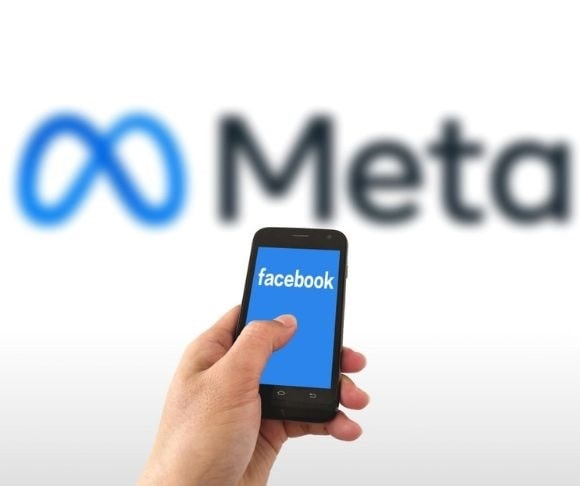Meta is heading to the chopping block again with another round of layoffs. This makes the second time since November the social media company has cut jobs and positions. But is CEO Mark Zuckerberg’s “year of efficiency” strategy really about being transparent and improving performance, or, as some employees suggest, a plan to keep them from accepting employment with competitors?
Meta to Shed Another 10,000 Employees
During a staff meeting on Thursday, March 16, Zuckerberg announced the termination of roughly 10,000 employees, and an additional 5,000 open positions that had yet to be filled. This is in addition to the more than 11,000 that were cut in November. It is part of the company’s plan to cut costs after a hiring frenzy during the pandemic and the rise of online competitors such as TikTok.
The dissolution of jobs is supposed to happen over the course of the next few months, leaving employees hanging and unsure if they’ll have a job at the end of it. In November, when Meta announced the first round of layoffs, staff was told more cuts were not anticipated for the “foreseeable future.” During Thursday’s meeting, Zuckerberg was asked how employees were supposed to trust the company after even more downsizing was announced just four months after they were told it wasn’t likely to happen. The CEO responded:
“I would guess that the way people would evaluate whether you trust me and want to work at this company in whether we are succeeding in making progress toward the overall stated goals. I think a lot of this is about the results we are able to deliver.”
The boss of one of the biggest social media platforms, which thrives on people being online, said remote work just isn’t working out for the company and that there is a temporary freeze on hiring people to work from home. Zuckerberg said in-person work is more productive, especially when it comes to new employees:
“Our early analysis of performance data suggests that engineers who either joined Meta in-person and then transferred to remote or remained in-person performed better on average than people who joined remotely. This analysis also shows that engineers earlier in their career perform better on average when they work in-person with teammates at least three days a week.”
This is quite the turnaround from the company’s policy to embrace remote work for the metaverse. On the Meta career page, Zuckerberg’s message reads, “We are going to be the most forward-leaning company on remote work at our scale, and we’re going to do this over time in a way that is measured, thoughtful and responsible.”
Pursuing Careers Elsewhere

(Photo credit CFOTO/Future Publishing via Getty Images)
Some staff claim that the Big Tech companies like Meta and Google hired thousands of people to do “fake work” which prevented them from working for competitors. Silicon Valley VC Keith Rabois of PayPal Mafia said, “There’s nothing for these people to do – it’s all fake work. Now that’s being exposed, what do these people actually do, they go to meetings.”
Brit Levy, a former Meta employee, aired her grievances on TikTok. In a video that has been viewed more than one million times, she claimed, “I was hired in April 2022; three days later after I was hired we were asked to take a diversity survey.”
Furthermore, Levy said, “Everyone else that I worked with got to work on stuff, but I didn’t. So I am one of those employees that was hired into a really strange position where they immediately put me into a group of individuals that was not working.” She continued:
“I mean, like, we were just sitting there. We had to basically fight to find work. It was a very strange environment and it kind of seemed like Meta was hiring people so that other companies couldn’t have us and they were just hoarding us like Pokémon cards.”
Mary Prescott, a Meta recruiter, told the Insider in an interview that she had survivor’s guilt as she watched others being laid off while she had little to no work since there wasn’t any hiring going on. But then she just received her walking papers and said it was actually a relief because she and other employees had been sitting in limbo for so long.

Mark Zuckerberg (Photo by Drew Angerer/Getty Images)
But, as Levy and others suggest, the company let some staff stay on the payroll even though they weren’t really working or learning new skills. The mom of two said that how Meta handled this was “really screwing up” careers. “It’s not really getting paid to do nothing, you’re getting paid to put your career on hold,” she explained. “You’re getting paid a temporary salary that is going to potentially reduce your lifetime earning potential.”
Levy continued, “A lot of people turned down other very legitimate good opportunities or they left really good jobs to go to Meta and get in these jobs. Then when they were not doing anything it’s like, ‘Okay, what is going to happen? I’m not learning new skills. I’m not working on projects.’”
Zuckerberg claims that the company is being transparent by giving employees advance notice of impending layoffs, but staff argue it makes it difficult to work never knowing if today will be their last day or if they will have a future with the company. It makes for bad morale and puts people’s careers on hold, they claim.
The CEO, however, defended his position, saying he understands it creates a period of uncertainty but that “it’s not like we can just pause working while we are figuring this out.”




